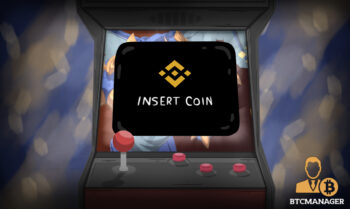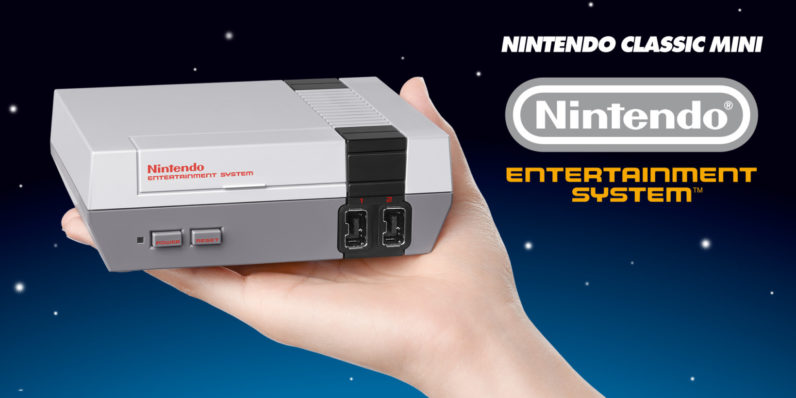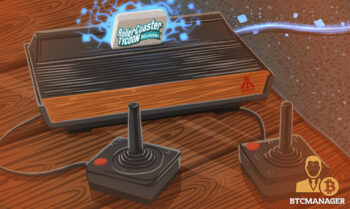
2019-2-19 01:35 |
Video games are a nearly $43 billion industry, according to a recent press release from the Entertainment Software Association and The NPD Group. These digital games and the consoles that play them are now an integral part of our culture, but it almost wasn’t this way.
In 1983, the video game industry hit a recession, known in some parts of the world as “Atari Shock.” It was not unlike 2018, for cryptocurrency.
Atari’s success in the home video game console market spurred a flood of competition, including ColecoVision and Intellivision, all competing with the birth of personal computers like the Commodore 64 and Macintosh.
Sales plummeted as hardware and software developers battled over control of publishing rights and other income streams. It ended with the iconic images of E.T. and other Atari game cartridges being buried in a New Mexico landfill.
Not only does cryptocurrency mimic the video game industry, but we’ve long discussed how intertwined the two truly are. In fact, we’re seeing the lines between the in-game currencies and cryptocurrencies blur more and more as we move into 2020.
And the ties run much deeper than our GPUs, where gaming and crypto mining push mathematical limits alongside video editors, VR developers, and other high throughput technologies.
In fact, Planet Digital Partners, a video game publisher run by former execs from Take 2/Rockstar and Sony’s Playstation division, is funded by an STO. This puts it on the cutting edge of both gaming and blockchain, but it’s far from the only company making these kind of moves this year.
Both blockchain and cryptocurrency are already making moves into video games and esports, and it’s time we shined a light on the most popular consumer use case of blockchain technology to date (according to DappRadar) – video games.
We’ll start with the company that carried the gaming industry on its shoulders back in 1983.
Sometimes Heroes Wear CapesDespite the home console market being flooded and investors (especially in North America) abandoning video games, one company proved it could still be profitable.
From 1983 through 1987, a small, 8-bit computer console called the Nintendo Entertainment System (Famicom in Japan) gained worldwide popularity. Insanely playable games exclusively owned by Nintendo gave it a competitive advantage. People fell in love with the mechanics of games like Mario and Zelda, which each took different paths to victory.
Super Mario Bros had timed levels, points, coins, and lives, giving replay value through high scores. Legend of Zelda was a linear story that encouraged exploration and staying alive as long as possible.
The Mario brothers became mascots for the industry, and Nintendo still holds approximately 9 percent of the global video game market. Many of the mechanics of these games (and others) are still integrated into modern games.
As consumers, we’re all used to earning in-game currencies to spend on in-game purchases. The lines between physical and digital cash were long blurred in the video game industry. And for too long, we accepted the one-way limitations. You can spend as much time and money as you want collecting Mario coins, but they’ll never be transferable for cash.
Of course, any authentic Nintendo-licensed product is almost guaranteed to retain value over time. Some Nintendo games sell for tens of thousands of dollars.
But the in-game currencies rarely transfer outside the game, and they never transfer outside the developer’s ecosystem.
Cryptocurrency companies have been lining up at the industry’s gates to make that connection happen.
Unikoin Gold (UKG), Loot, UltiCoin (ULTI) and GameCredits are among the platforms trying to negotiate with big developers like Blizzard, Nintendo, and EA. They want to integrate their cryptocurrencies into existing games to let gamers cash out. While ambitious, it’s unlikely any of these companies will be the next Mario that carries both crypto and gaming on their shoulders.
While the promise of cross-platform currencies sounds great, we barely got cross-platform play in 2019. The idea that developers will let one of these startups profit from their work is a pipe dream.
What’s more likely is the existing developers will simply funnel their in-game currencies into the Playstation, Xbox, Nintendo, Steam, Android, and iOS marketplaces. Think of it like store credit with points being roughly equal in value to Best Buy Reward points.
Developers want you playing their game more – not earning cash. But that doesn’t mean a secondary economy based on eSports and social gaming won’t be built.
And that’s just one aspect of how crypto is impacting video games. There’s also the underlying blockchain.
Chaining Together a Winning ComboThere are a lot of moving parts in gaming. Have you ever sat down and counted how many names are in the end credits of your favorite video game? Industry analysts estimate the video game industry supports over 220,000 jobs.
And the people working at these jobs are serious about their craft.
Video game mechanics became somewhat of the “secret sauce” that could be licensed at will, and you’ll find a lot of games running on Epic’s Unreal Engine. Fortnite, arguably the most popular video game of this generation, is the target of constant lawsuits over copyright infringement, from its game mechanics to in-game dance purchases.
What’s even funnier is the developers of competitor PUBG sued Epic over using its own Unreal Engine in Fortnite.
Tracking copyrighted content is a complicated issue, as are security issues around online gaming, in-game purchases, and more. Gaming inevitably invites cheating too.
These are the technical issues blockchain will need to address to truly be integrated into video gaming, and it already happens.
Current video game servers are essentially already blockchains. They’re both distributed and decentralized networks, with each console acting as a node. You really notice this when you can’t play a game you inserted into your PS4 or Xbox One because it needs to download an hour or two worth of data to sync with the rest of the network.
Instead of “mining,” each node is responsible for processing the data necessary to run the game smoothly. Video game matchmaking systems were already using blockchain technology for decades – they just didn’t call it that.
Beyond the technical and economic issues the video game industry historically faced, it’s also a lightning rod for political rhetoric.
Long before bitcoins were vilified as the preferred currency of online drug dealers, video games like Death Race in the 1970s were blamed for inciting violence.
The video game industry has long dealt with the same polarizing, sensationalist headlines as cryptocurrency. In 2018, the gaming and crypto communities were divided over the cost of graphics cards.
Moving through 2019 and into 2020, the combined power of these two industries will fuel innovation, and I truly believe we’re about to see a crypto Mario rise from the ashes to carry the market on its shoulders for the next decade.
The author is invested in digital assets, including BTC and ETH, which are mentioned in this article.
Join the conversation on Telegram and Twitter!The post Video Games Are the Next Level of Blockchain and Crypto appeared first on Crypto Briefing.
origin »Bitcoin price in Telegram @btc_price_every_hour
Emerald Crypto (EMD) íà Currencies.ru
|
|
























